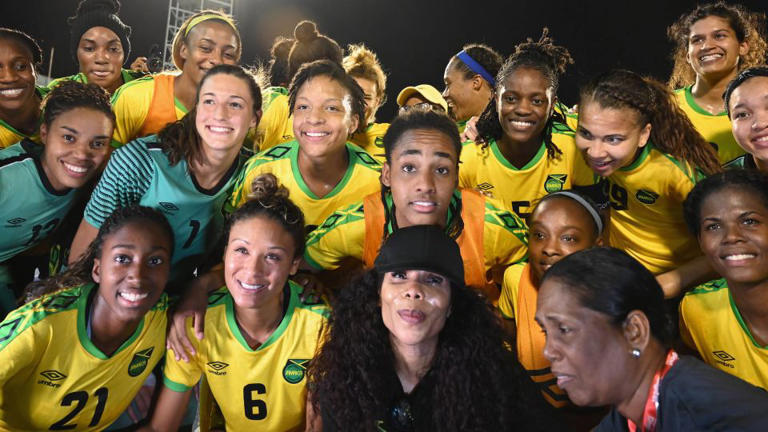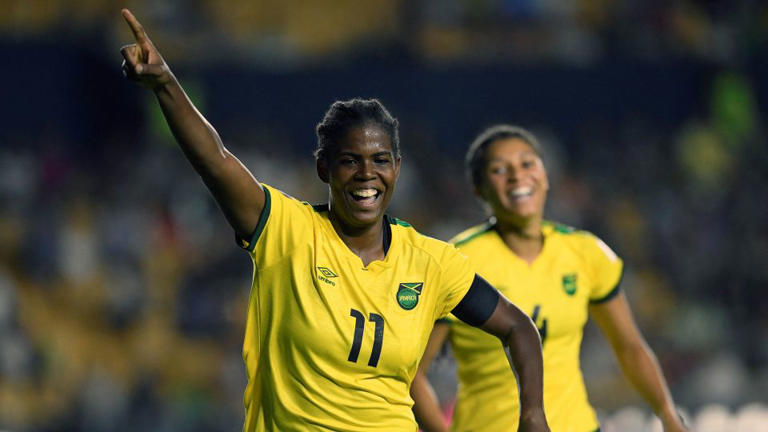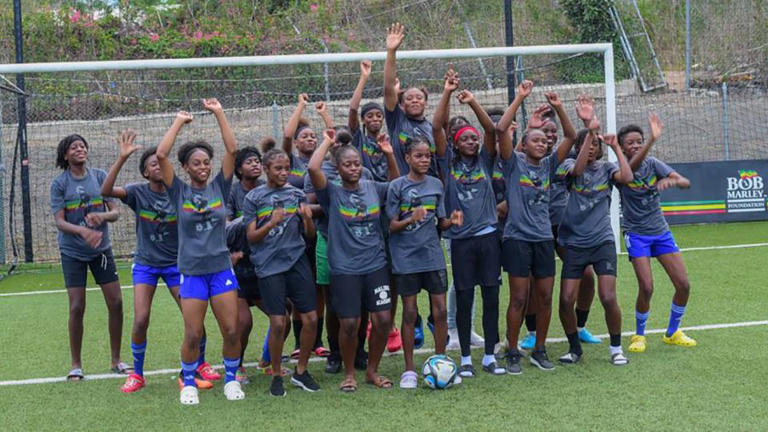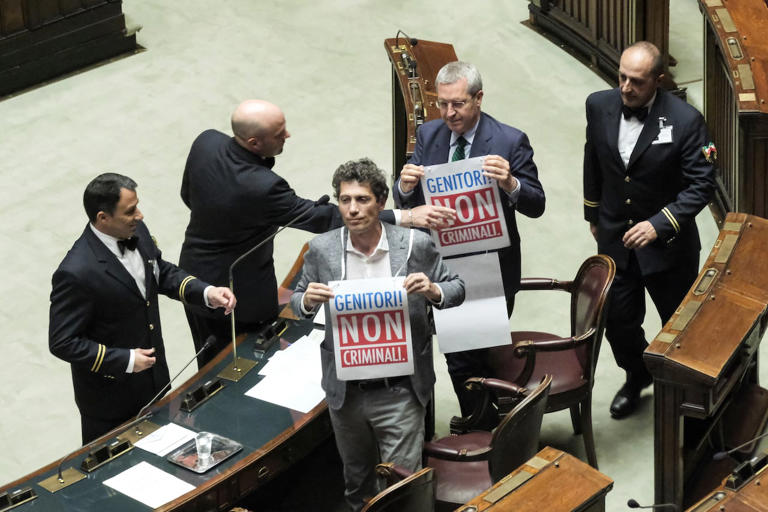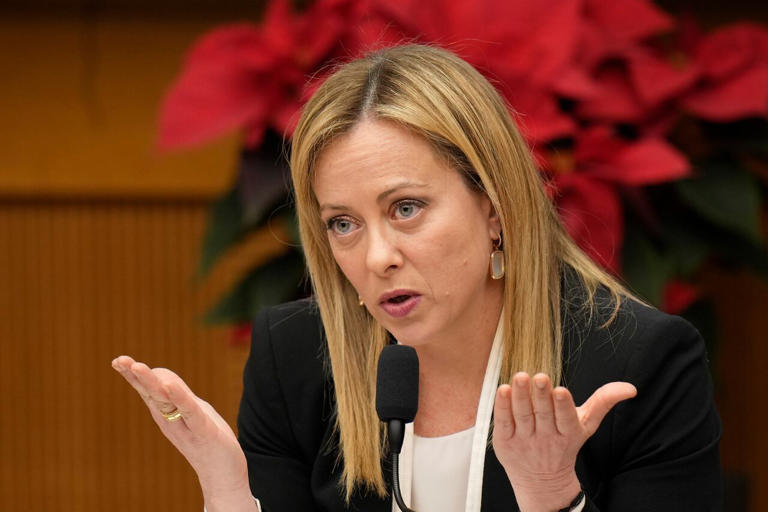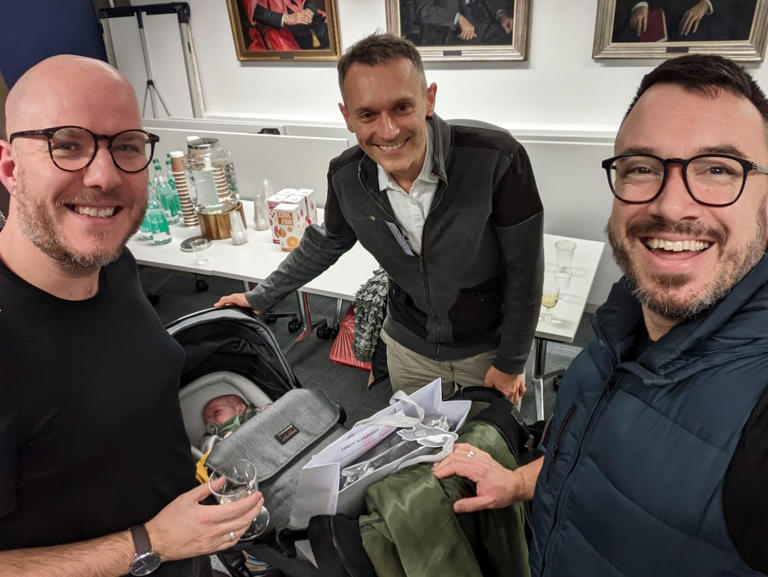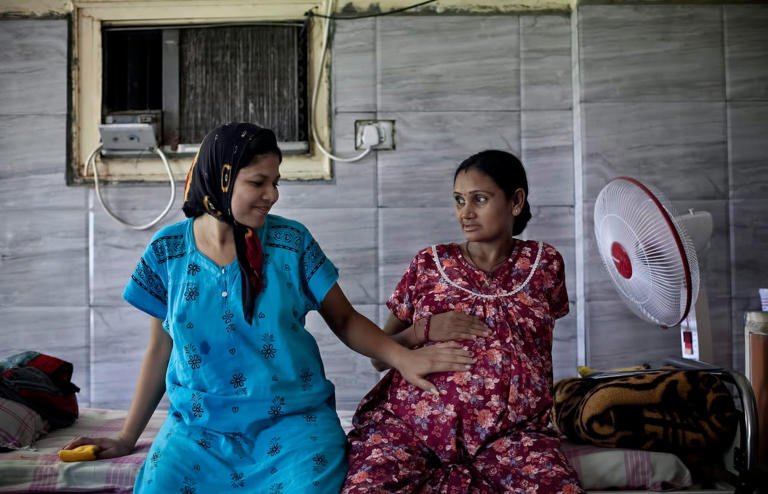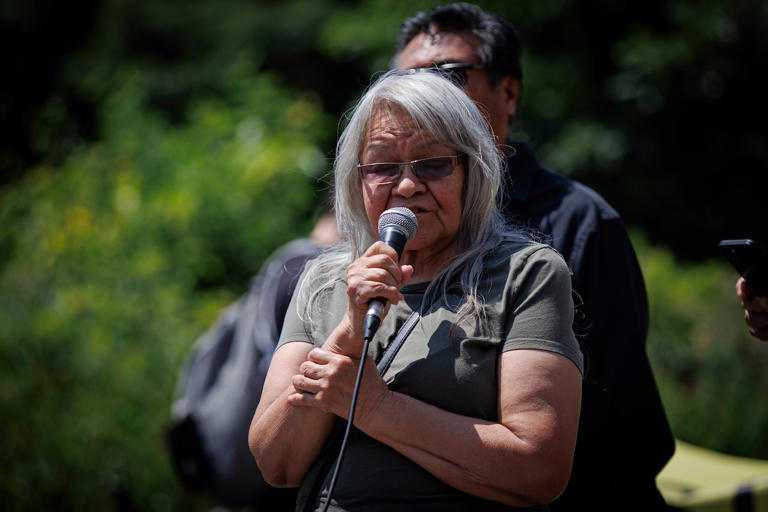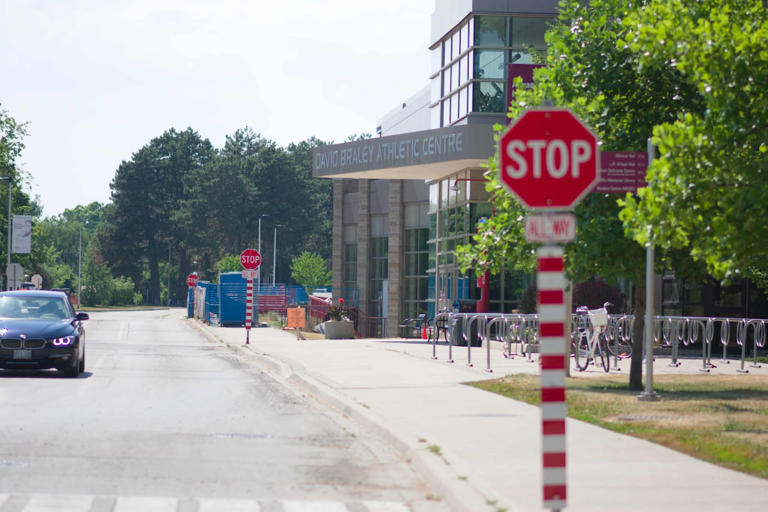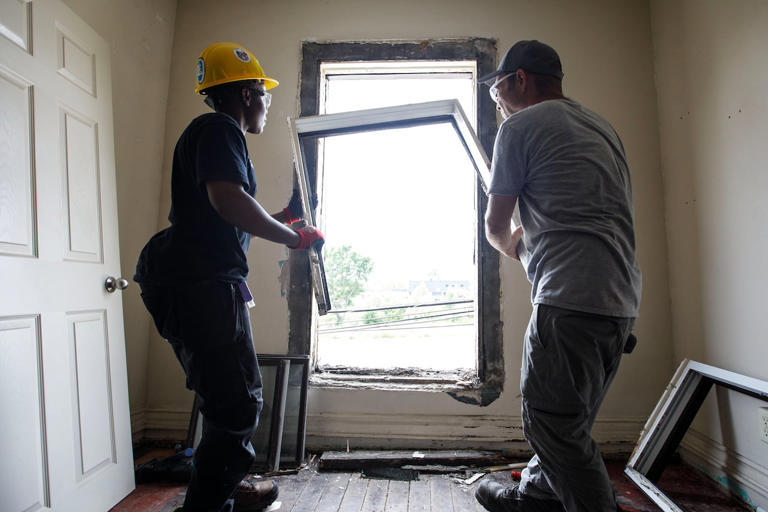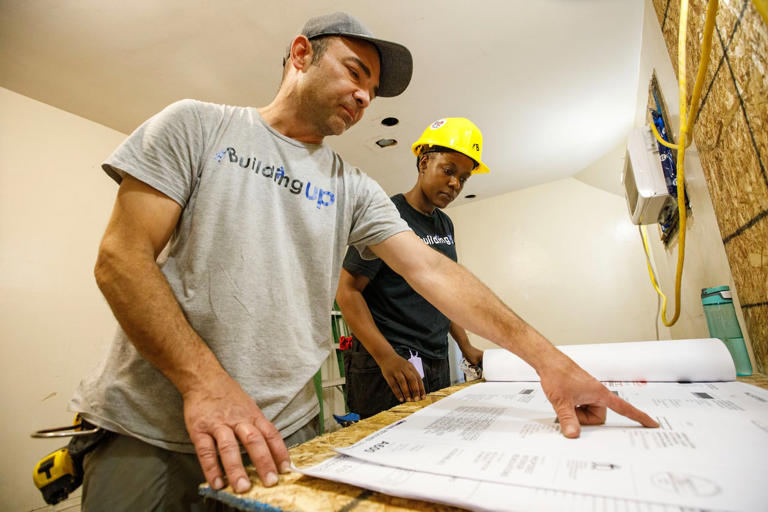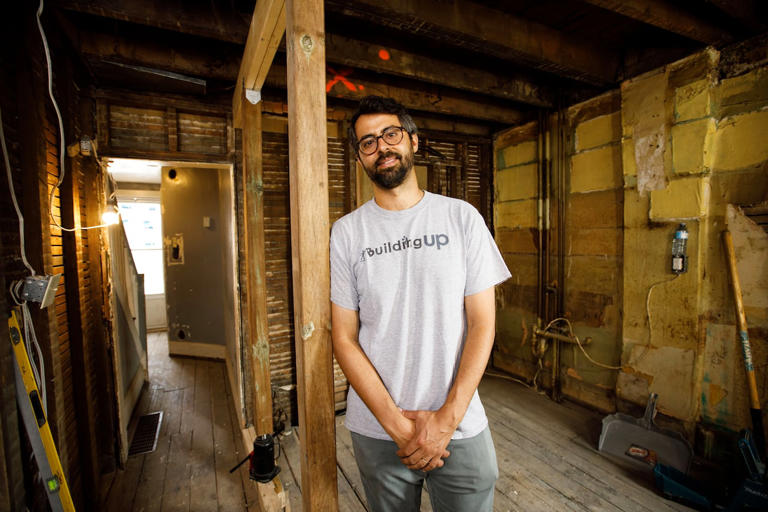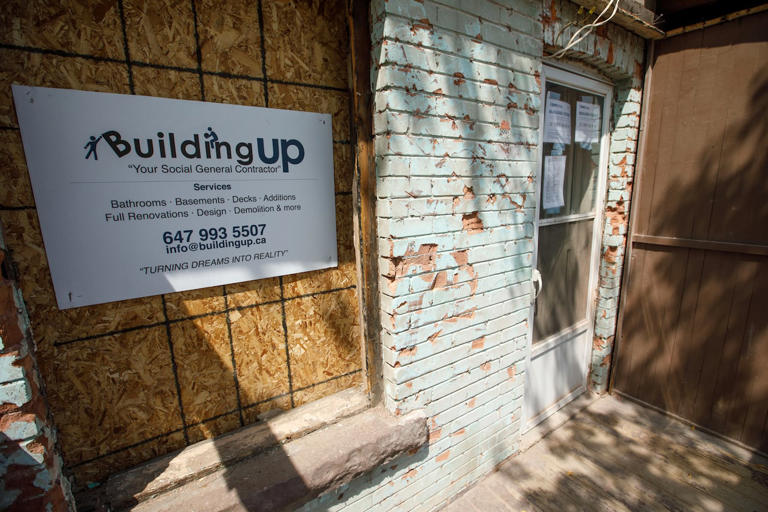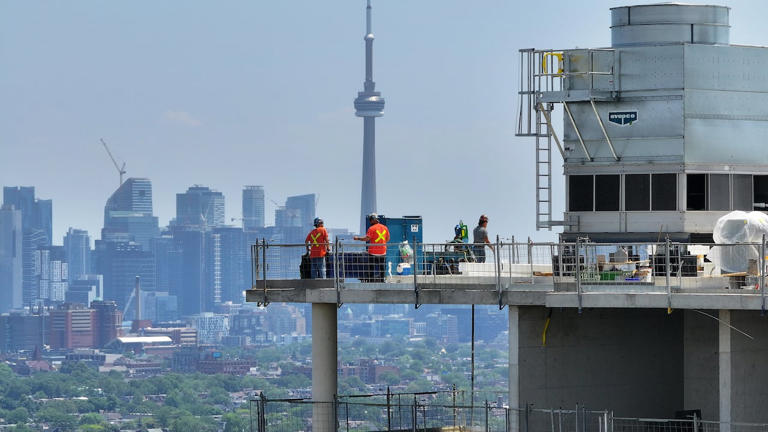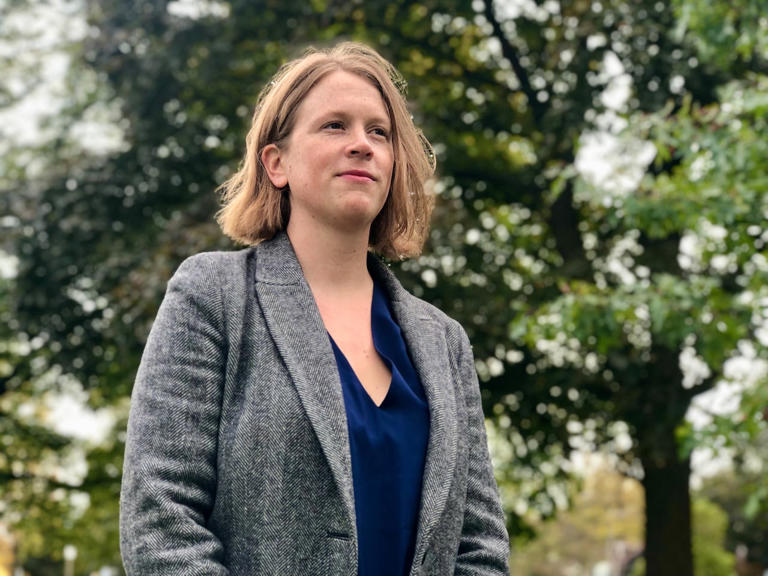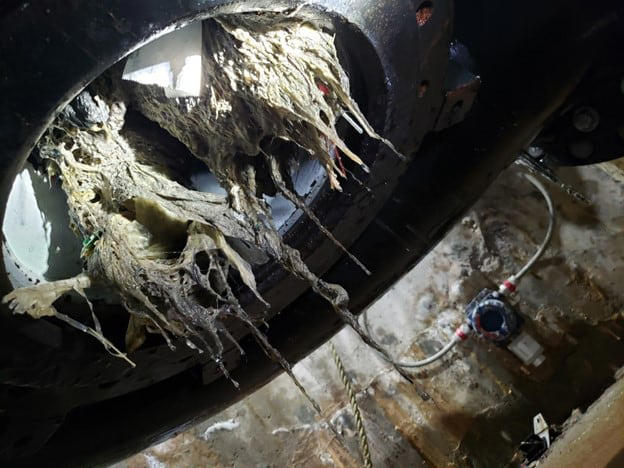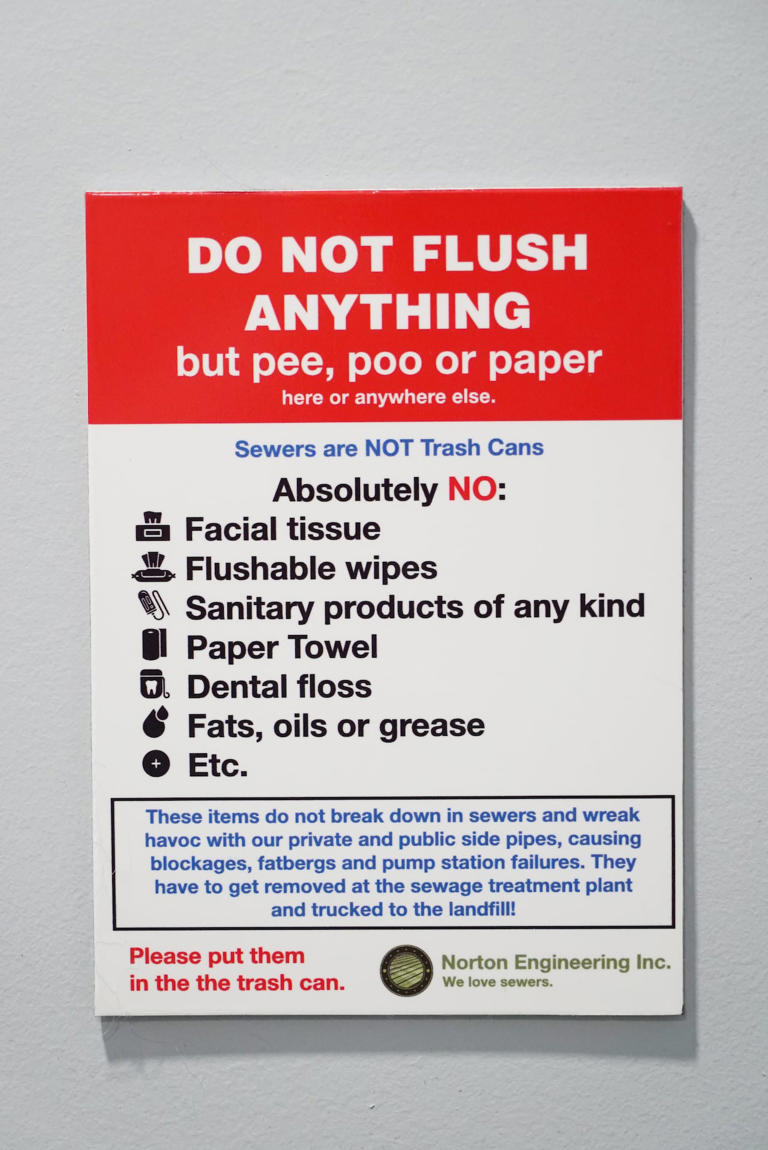Story by Washington Post •
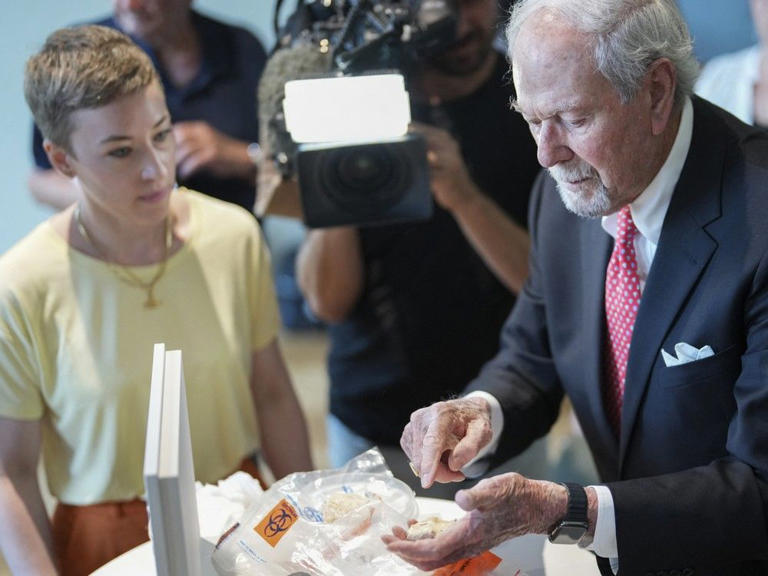
U.S. businessman Paul Kaufmann, who inherited the skull fragments, presumed to be of Ludwig van Beethoven from his great uncle, shows them to journalists at the Medical University of Vienna, Austria, to which he has donated them for further studies, on July 20, 2023.
LONDON – Ludwig van Beethoven, wracked by deafness and ill health throughout much of his life, asked for his body to be studied when he died.
This week, an American businessman returned fragments of a skull that scientists believe belong to the famed German composer for research at the Medical University of Vienna, where he lived and worked.
Medical and DNA experts will study and store the bones, known also as the Seligmann fragments, to find out what ailed the classical music maestro who died in 1827 after gaining international fame.
“It’s about finding the right balance between comprehensible public interest and respect for a deceased person,” University Rector Markus Müller said in a statement. “We gratefully accept these fragments and will store them responsibly.”
The remains were donated by Paul Kaufmann, who, according to the statement, inherited the fragments from his Austrian-born mother, who in turn received them from the estate of her great-uncle Franz Romeo Seligmann – a Viennese physician and medical historian who was involved with the reburial of Beethoven in 1863. (Beethoven’s body was exhumed multiple times to better preserve his remains and change his burial site.)
“I feel very privileged to be able to return my inherited Beethoven skull fragments to where they belong,” Kaufmann said in a statement. “Not only will they come ‘home,’ to where Beethoven now rests forever, but also to the Medical University of Vienna, which will have them available for research.”
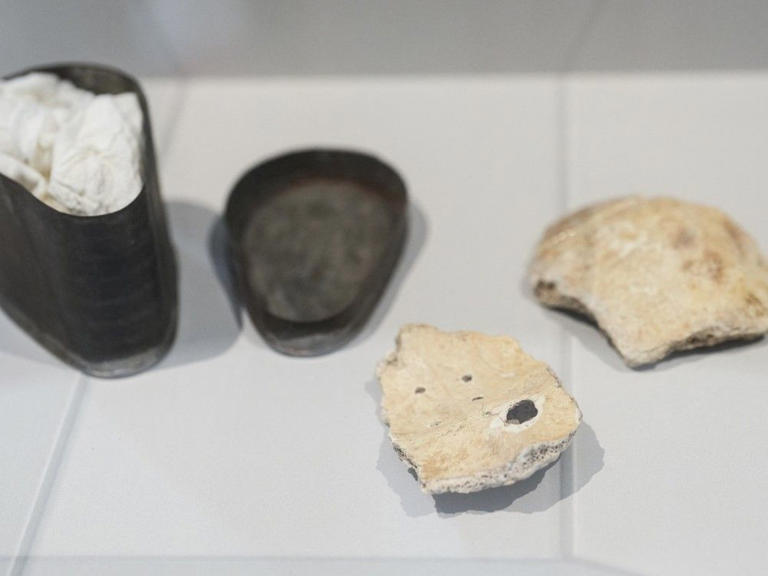
The skull fragments, presumed to be of Ludwig van Beethoven are on display at the Medical University of Vienna, Austria on July 20, 2023.
© EVA MANHART
According to a study by renowned Beethoven scholar William Meredith, founding director of the Ira F. Brilliant Center for Beethoven Studies at San José State University, the fragments comprise two large skull pieces and eleven small to tiny skull pieces, which were kept in a small pear-shaped box with the name “Beethoven” etched on the side.
Forensic pathologist Christian Reiter has examined the fragments in the past and said in a statement this week that he believes the provenance is credible but will carry out “further investigations, for example based on DNA,” to “get closer to the question of whether it really is Ludwig van Beethoven.”
Beethoven was born in the German city of Bonn in 1770. He went on to produce more than 700 works including nine symphonies, 35 piano sonatas and 16 string quartets. He is best known for his works including Symphony No. 9; Symphony No. 3 (“Eroica”); and Piano Moonlight Sonata, among others. A gifted pianist from a young age, he began to turn deaf in his early 30s, a tragedy the composer often documented.
“I was compelled early to isolate myself, to live in loneliness,” he wrote in a letter to his brothers in 1802 about his hearing loss, adding that his medical complaints made him yearn for death. “As soon as I am dead if Dr. Schmid is still alive ask him in my name to describe my malady and attach this document to the history of my illness so that so far as possible at least the world may become reconciled with me after my death,” he wrote.
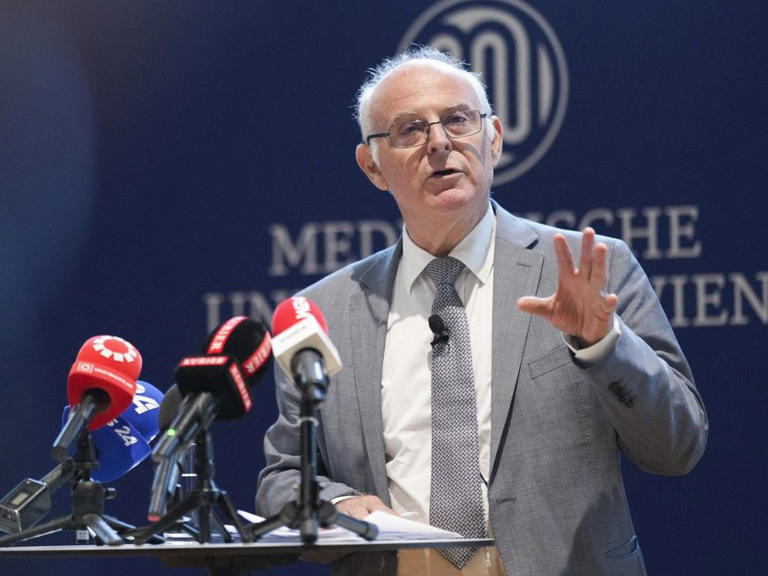
Coroner Christian Reiter speaks to journalists at the Medical University of Vienna, Austria, on July 20, 2023, where the skull fragments, presumed to be of Ludwig van Beethoven are on display.
According to a study by renowned Beethoven scholar William Meredith, founding director of the Ira F. Brilliant Center for Beethoven Studies at San José State University, the fragments comprise two large skull pieces and eleven small to tiny skull pieces, which were kept in a small pear-shaped box with the name “Beethoven” etched on the side.
Forensic pathologist Christian Reiter has examined the fragments in the past and said in a statement this week that he believes the provenance is credible but will carry out “further investigations, for example based on DNA,” to “get closer to the question of whether it really is Ludwig van Beethoven.”
Beethoven was born in the German city of Bonn in 1770. He went on to produce more than 700 works including nine symphonies, 35 piano sonatas and 16 string quartets. He is best known for his works including Symphony No. 9; Symphony No. 3 (“Eroica”); and Piano Moonlight Sonata, among others. A gifted pianist from a young age, he began to turn deaf in his early 30s, a tragedy the composer often documented.
“I was compelled early to isolate myself, to live in loneliness,” he wrote in a letter to his brothers in 1802 about his hearing loss, adding that his medical complaints made him yearn for death. “As soon as I am dead if Dr. Schmid is still alive ask him in my name to describe my malady and attach this document to the history of my illness so that so far as possible at least the world may become reconciled with me after my death,” he wrote.

Coroner Christian Reiter speaks to journalists at the Medical University of Vienna, Austria, on July 20, 2023, where the skull fragments, presumed to be of Ludwig van Beethoven are on display.
© EVA MANHART
Beethoven suffered from bouts of ill health throughout his adult life, including a number of debilitating gastrointestinal symptoms and attacks of jaundice. An autopsy revealed that he had cirrhosis of the liver, pancreatitis and a swollen spleen among other ailments.
Earlier this year, a strand of the composer’s hair was studied by international researchers, allowing them to sequence Beethoven’s DNA. They identified genetic risk factors for liver disease and found signs that he had a hepatitis B infection that could have contributed to his cirrhosis.
Medical knowledge and treatment was limited in the early 19th century, but medical biographers have debated what killed him at the age of 56 and whether his liver disease was the result of excessive drinking or some other cause.
“Beethoven has long been described as a genius … against whom others tend to be judged,” Laura Tunbridge, a musicologist at the University of Oxford and author of “Beethoven: A Life in Nine Pieces,” told The Washington Post by email.
Studies of his skull are likely to hold public interest today, she said. “Understanding how such a creative mind worked – or at least trying to – continues to fascinate,” she added.
“Beethoven’s personal life was complicated … his hearing loss made socializing challenging,” Tunbridge added. She noted that finding answers to his ailments may be difficult – but that much can still be gleaned about him from listening to his music. “There is always more to learn,” she said.
— The Washington Post’s Carolyn Y. Johnson contributed to this report.
Beethoven suffered from bouts of ill health throughout his adult life, including a number of debilitating gastrointestinal symptoms and attacks of jaundice. An autopsy revealed that he had cirrhosis of the liver, pancreatitis and a swollen spleen among other ailments.
Earlier this year, a strand of the composer’s hair was studied by international researchers, allowing them to sequence Beethoven’s DNA. They identified genetic risk factors for liver disease and found signs that he had a hepatitis B infection that could have contributed to his cirrhosis.
Medical knowledge and treatment was limited in the early 19th century, but medical biographers have debated what killed him at the age of 56 and whether his liver disease was the result of excessive drinking or some other cause.
“Beethoven has long been described as a genius … against whom others tend to be judged,” Laura Tunbridge, a musicologist at the University of Oxford and author of “Beethoven: A Life in Nine Pieces,” told The Washington Post by email.
Studies of his skull are likely to hold public interest today, she said. “Understanding how such a creative mind worked – or at least trying to – continues to fascinate,” she added.
“Beethoven’s personal life was complicated … his hearing loss made socializing challenging,” Tunbridge added. She noted that finding answers to his ailments may be difficult – but that much can still be gleaned about him from listening to his music. “There is always more to learn,” she said.
— The Washington Post’s Carolyn Y. Johnson contributed to this report.

